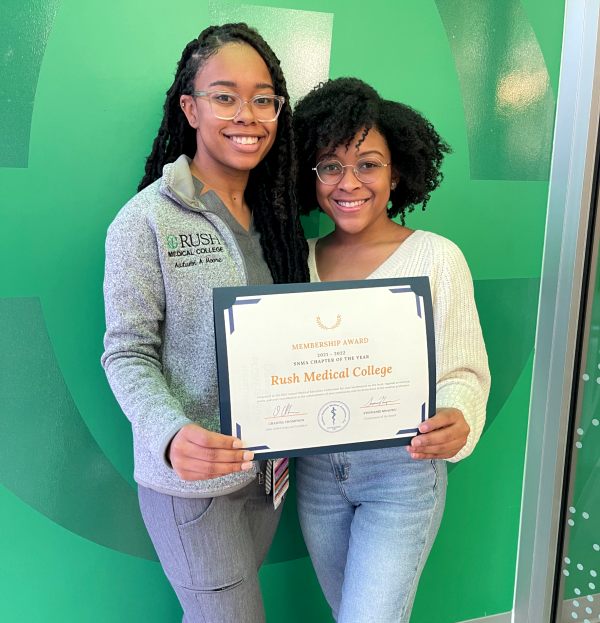The Student National Medical Association (SNMA) recognized Rush University Medical Center and Rush Medical College with several awards at the organization’s recent Annual Medical Education Conference in Orlando, Fla. The theme for this year’s conference was achieving purpose in an era of health advocacy, equity and reform.
Rush University Medical Center received this year’s SNMA Institutional Diversity Award. The award is given annually to an institution that exemplifies the mission of SNMA through a commitment to diversity and excellence in academic advising. During the award presentation, Rush was recognized for its commitment to recruiting students and faculty underrepresented in medicine, its dedication to underserved communities in Chicago through over 30 Rush Community Service Initiatives Programs, and its willingness to stand up for marginalized groups facing discrimination. Susan Lopez, MD, director of diversity and inclusion for Graduate Medical Education, and assistant professor in the Department of Internal Medicine, accepted the award on Rush’s behalf.

In addition, Marissa Pharel, second-year medical student and immediate past president of Rush’s SNMA chapter, was awarded the National SNMA Member of the Year Award for her outstanding work on the chapter and regional level, and her service as a role model through mentoring and outreach.
SNMA Regional Elections
Regional elections were also held during the conference and three Rush Medical College students were elected to Region 2 executive board positions. Congratulations to Marissa Pharel, who was selected as the regional director for 2022-2024; Tosin Adebayo, who was elected to secretary; and Jubril Adepoju, who will serve as parliamentarian. The SNMA Region 2 executive board oversees SNMA chapters throughout Illinois, Iowa, Kansas, Minnesota, Missouri, Nebraska, North Dakota, South Dakota, Wisconsin and Wyoming.
About SNMA
Established in 1968, the Student National Medical Association (SNMA) is committed to supporting current and future underrepresented minority medical students, addressing the needs of underserved communities, and increasing the number of clinically excellent, culturally competent and socially conscious physicians. SNMA chapters based at allopathic and osteopathic medical schools throughout the nation, and some colleges, implement programs and activities locally.

